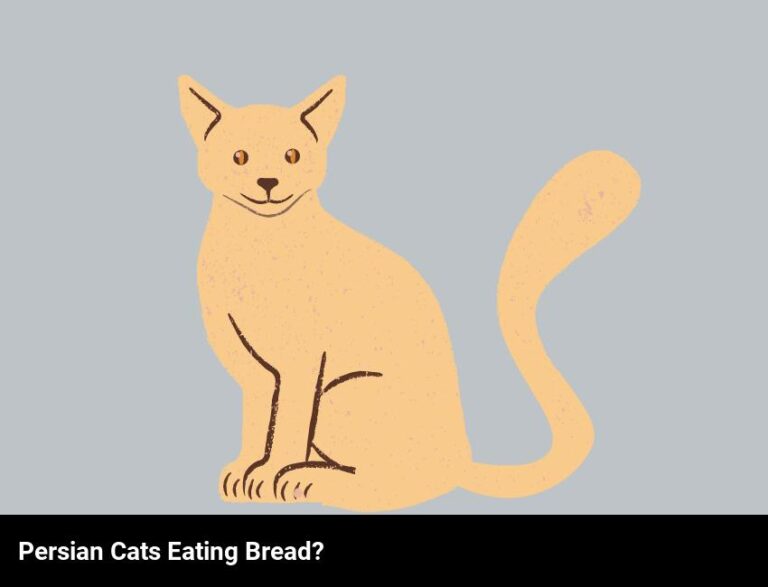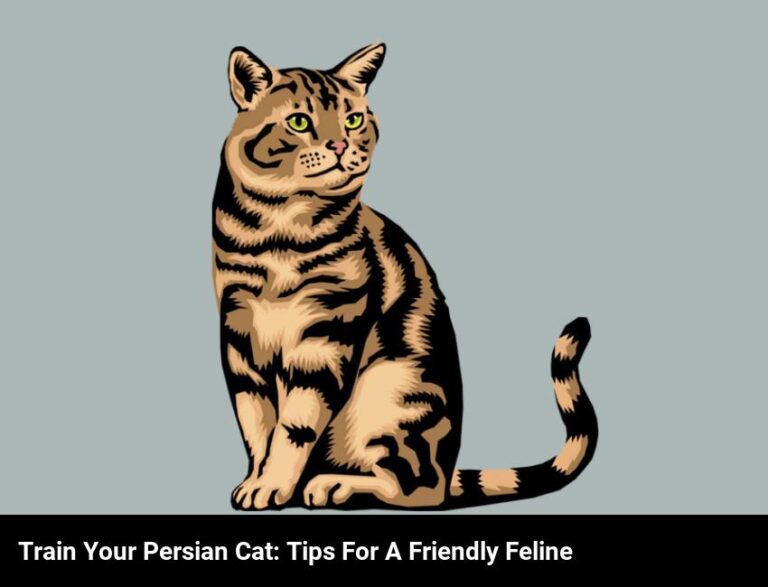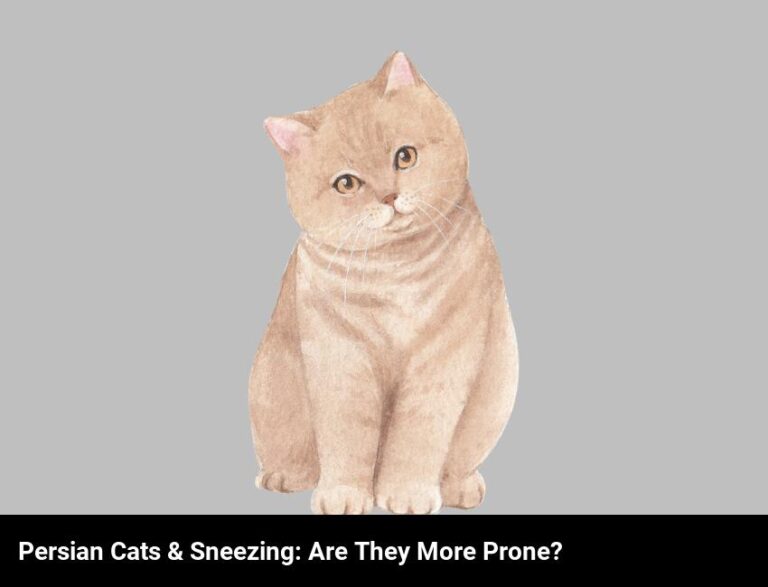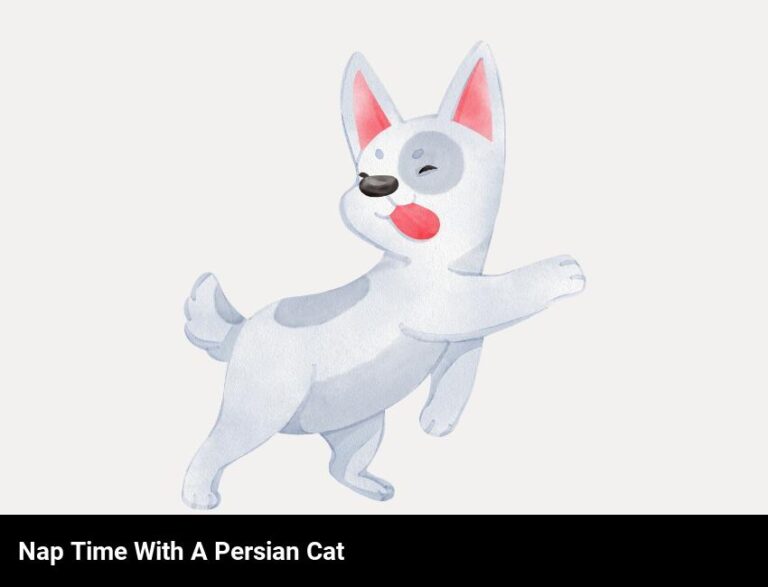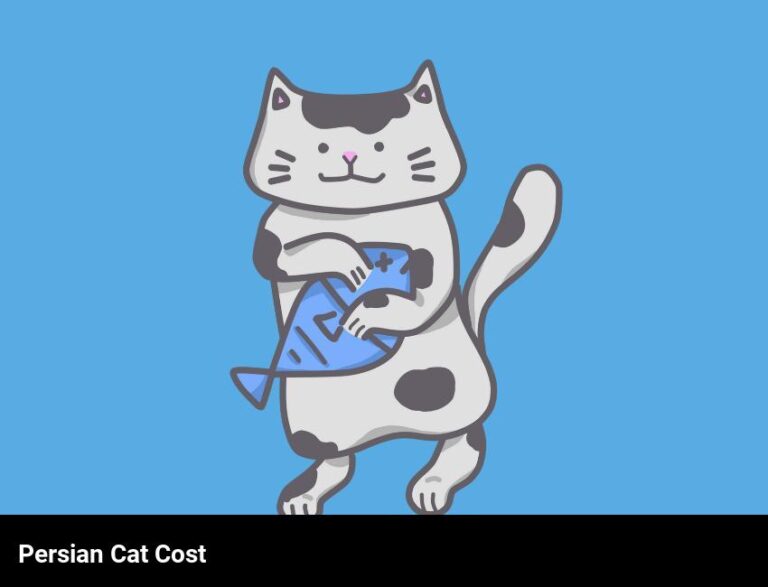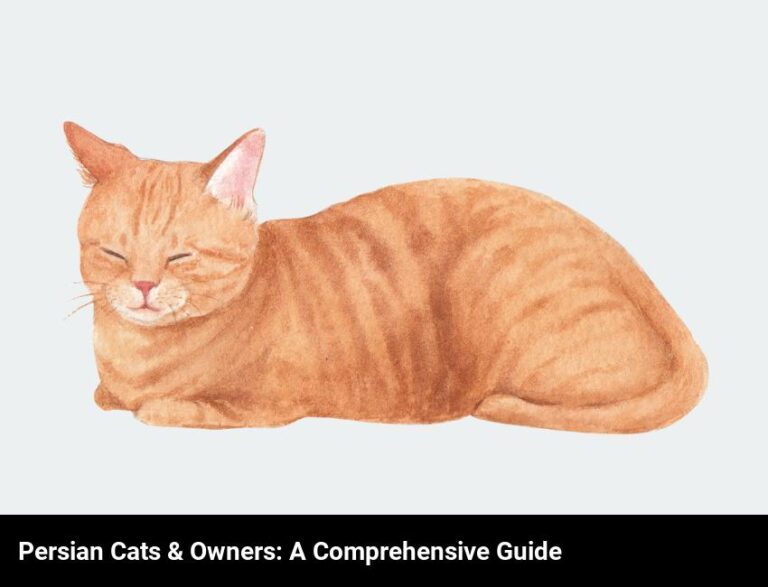Can Persian Cats Eat Eggs?
Yes, Persian cats can eat eggs. They should be cooked before being served to the cat. Eggs provide cats with important nutrients, including protein and fatty acids.
As a proud Persian cat owner, I’m always looking for ways to provide my furry friend with the best nutrition possible. So, recently I started to wonder if Persian cats can eat eggs. After researching the topic extensively, I now have a better understanding of what Persian cats should and shouldn’t be eating. In this blog, I’m going to share my findings, so you can learn all about the benefits, risks and recommended portion sizes of feeding eggs to Persian cats. I’m also going to provide some egg-based recipes, as well as alternative protein sources, so you can ensure your Persian cat is getting all the nutrition they need.
What kind of food do persian cats normally eat?
Yes, Persian cats can eat eggs! Eggs provide a nutritious and delicious meal for cats of all kinds. Persian cats, in particular, enjoy the taste of scrambled and boiled eggs.
One of the many benefits of feeding your Persian cat eggs is that it is a great source of protein. They are also full of vitamins and minerals, such as B Vitamins, Vitamin A, and Selenium. Eggs also contain essential fatty acids and antioxidants, which help keep your kitty’s fur and skin healthy.
When feeding your Persian cat eggs, it is important to make sure they are cooked. Raw eggs can cause digestive problems and should be avoided. You can feed your Persian cat boiled, scrambled, or even just the yolk of a hard-boiled egg (the white can cause skin and coat issues).
It is also important to remember that eggs should only be given as an occasional treat, not as a replacement for their regular diet. Too many eggs can cause your Persian cat to become overweight, so it’s best to keep it to just a few a week.
Eggs can be an excellent addition to your Persian cat’s diet. Not only are they tasty and nutritious, but they are also a great way to show your pet some extra love and affection.
Is it safe for persian cats to eat eggs?
Yes, Persian cats can safely eat eggs! Eggs are a healthy source of protein and can provide many essential vitamins and minerals that a Persian cat needs to stay healthy. But, you should always be mindful of how much an egg your cat is eating and consult with your veterinarian before adding eggs to your cat’s diet.
Eggs offer a variety of essential nutrients for cats, including essential fatty acids and essential amino acids. They are also high in protein and provide a great source of energy for your pet. Additionally, eggs contain beneficial vitamins and minerals, such as Vitamin A, Vitamin D, and Calcium, all of which are important for a Persian cat’s overall health.
When feeding your Persian cat eggs, it’s important to keep portions small. Too much egg can lead to digestive problems in cats. It’s best to give your cat only one to two eggs per week and to consult with your veterinarian before feeding eggs to your pet.
It’s also important to make sure the egg is cooked properly before feeding it to your cat. Raw eggs contain an enzyme that could potentially cause biotin deficiency in cats, which could lead to health complications. Cook the egg until it is hard-boiled and allow it to cool before feeding it to your pet.
Overall, Persian cats can safely eat eggs if given in moderation and in the correct form. However, it’s always best to consult with your veterinarian before adding any new food to your pet’s diet. With some careful monitoring, eggs can be a delicious and nutritious addition to your Persian cat’s diet.
What is the recommended portion size for persian cats when it comes to eggs?
Yes, Persian cats can eat eggs, but it’s important to know the right portion size for your cat. The recommended portion size for Persian cats when it comes to eggs is one to two eggs per week. This amount should be divided into two meals per week.
This portion size is important because eggs are high in cholesterol and because cats are obligate carnivores, their bodies are not designed to digest large amounts of cholesterol. Feeding your Persian cat too much egg can result in digestive issues, including vomiting and diarrhea.
It is also important to ensure that the eggs are cooked before feeding them to your cat. Raw eggs often contain bacteria, such as salmonella, which can be dangerous for cats. The eggs should also be free from seasonings and additives such as butter or oil, as these can be unhealthy for cats as well.
Finally, make sure to feed your Persian cat a balanced diet to ensure that they stay healthy. This can include wet food, dry food, and occasional treats, including eggs. Make sure to monitor your cat’s health and adjust their diet as needed.
In conclusion, Persian cats can eat eggs, but make sure to stick to the recommended portion size of one to two eggs per week, divided into two meals. Additionally, make sure that the eggs are cooked and free from seasonings and additives. Lastly, feed your cat a balanced diet to ensure their overall health and well-being.
What are the nutritional benefits that eggs can provide cats?
Yes, eggs can provide cats with several key nutritional benefits! Here’s why eggs are beneficial for cats:
- Eggs are a great source of protein – Protein is essential for cats for the growth, maintenance, and repair of their cells.
- Eggs are a good source of taurine – Taurine is an amino acid that cats need for their eyes, heart, and digestion.
- Eggs provide cats with essential fatty acids – Essential fatty acids help maintain a healthy skin and coat, as well as aid in proper nerve development and growth.
- Eggs are a good source of vitamins – Eggs are a good source of vitamins A and B, both of which are essential for the growth, maintenance, and repair of cells.
- Eggs provide cats with minerals – Eggs are a good source of minerals such as phosphorus, magnesium, and potassium, all of which are necessary for proper muscle and nerve function.
What are the potential risks of feeding eggs to persian cats?
Yes, Persian cats can eat eggs, but there are potential risks to consider before adding them to their diet. First, eggs contain a lot of fat, which can be difficult for cats to digest and can lead to digestive issues. Secondly, eggs must be cooked before feeding them to cats to prevent the risk of salmonella. Raw eggs can also be difficult for cats to digest. Lastly, some cats may be allergic to eggs, so it’s important to monitor your cat’s reactions if you do decide to feed them eggs.
It’s best to feed your Persian cat eggs in moderation and only as a treat. Make sure to cook the eggs thoroughly and watch for any allergic reactions. If you notice any digestive issues or your cat appears uncomfortable after eating eggs, it’s best to consult your veterinarian.
What are the best egg-based recipes for persian cats?
Yes, Persian cats can eat eggs! There are several egg-based recipes that make for great snacks for them. Here are some of the best egg-based recipes for Persian cats:
- Scrambled Eggs: Scrambled eggs are a classic egg-based recipe that Persian cats love. All you need is a few eggs, butter, and a little bit of milk. Crack the eggs into a bowl, add the butter and milk, and whisk together. Heat a pan over medium-high heat, add the egg mixture, and scramble the eggs until they are cooked through. Serve the scrambled eggs to your Persian cat and watch them enjoy the delicious treat.
- Egg and Cheese Omelette: For a more filling snack, try making a simple egg and cheese omelette for your Persian cat. Crack two eggs into a bowl, whisk lightly, and add some grated cheese. Heat a pan over medium-high heat, add a bit of butter, and pour the egg mixture into the pan. Cook the omelette until it’s golden brown, then flip it and cook the other side. Cut the omelette into small pieces and let your Persian cat enjoy the cheesy treat.
- Hard Boiled Eggs: Hard boiled eggs make for a great snack for Persian cats. All you need to do is place the eggs in a pot, fill the pot with cold water, and bring the water to a boil. Once the water is boiling, reduce the heat and let the eggs simmer for 10-15 minutes. Once the eggs are done, let them cool before serving to your Persian cat.
Egg-based recipes make for a tasty snack for Persian cats. These recipes are easy to make and provide a great source of protein for your furry friend. So the next time you’re looking for a snack for your Persian cat, try one of these egg-based recipes.
How can you tell if your persian cat is enjoying eggs?
Yes, Persian cats can eat eggs – and they can enjoy them too! The trick is to pay attention to your cat’s behaviors and reactions when they eat eggs. Here are some tips to help you tell if your Persian cat is really enjoying them.
First, observe your cat’s body language. Does your cat seem to be relaxed and comfortable when they are eating eggs? Are they purring contentedly as they lick up the egg? If so, then your Persian cat is likely enjoying their egg-eating experience.
Next, look at your cat’s facial expressions. Does your cat seem to be happily licking their whiskers after eating eggs? Do they look content and satisfied? If so, then it’s a good indication that your cat is loving their eggs.
Finally, watch how much your cat is eating. Cats love eggs because they are a good source of nutrition, so if your cat is eating a lot of eggs then it’s a clear sign that they’re enjoying them.
If you’re still not sure whether or not your Persian cat is enjoying eggs, then just keep an eye on their behaviors and reactions. With a little bit of observation, you’ll be able to tell whether or not your cat is happy and content when they eat eggs.
What are some alternative protein sources for persian cats if eggs aren’t their favorite?
Yes, Persian cats can enjoy eggs as a delicious and nutritious treat. However, if your furry friend isn’t too keen on eggs, there are many other protein-packed alternatives they can enjoy.
Fish is a great high-protein option, such as canned tuna, salmon, mackerel, or sardines. Canned or cooked poultry, like chicken, turkey, or duck, is also an excellent source of protein. You can also offer them cooked beef, lamb, or pork.
Egg substitutes can also be found in the form of pet food. Look for ones that are specifically formulated for cats and contain high-quality sources of protein. You can also mix in some cooked meat or canned fish for an extra boost of protein.
Vegetarian and vegan options are also available, such as textured vegetable protein, tofu, tempeh, and seitan. Keep in mind that some cats may not digest these proteins as well as animal proteins, so be sure to consult with your veterinarian first.
There are also a number of cat treats that are rich in protein, such as freeze-dried chicken, beef, or fish. As with any treats, be sure to offer them in moderation.
If your Persian cat isn’t a fan of eggs, you have plenty of other protein sources to choose from.

Frequently Asked Questions
Have persian cats ever eaten eggs before?
Yes, Persian cats can eat eggs. They may not eat them as frequently as some other types of cats, but eggs can be a part of their diet. They should only be given in moderation, as eggs are high in fat and can lead to weight gain. Additionally, Persian cats should never consume raw eggs. Always cook the egg first, either boiled or scrambled, to minimize the risk of food-borne illness.
What type of eggs can persian cats eat?
Persian cats can eat eggs as a part of their regular diet. However, the type of eggs they can eat should be limited to hard-boiled or scrambled eggs that are cooked without additional ingredients such as butter or oil. It is important to make sure that the eggs are cooked thoroughly and that they are served at room temperature. Additionally, it is best to only give your Persian cat eggs as an occasional treat.
Do persian cats enjoy eating eggs?
Yes, Persian cats can enjoy eating eggs. In fact, eggs are a great nutritional supplement for cats as they provide a good source of protein and amino acids. They also contain essential fatty acids, which can help to promote a healthy coat and skin. However, it is important to feed eggs in moderation and always in cooked form to avoid the risk of food-borne illnesses. If you would like to feed your Persian cat eggs, make sure you discuss it with your veterinarian first.


